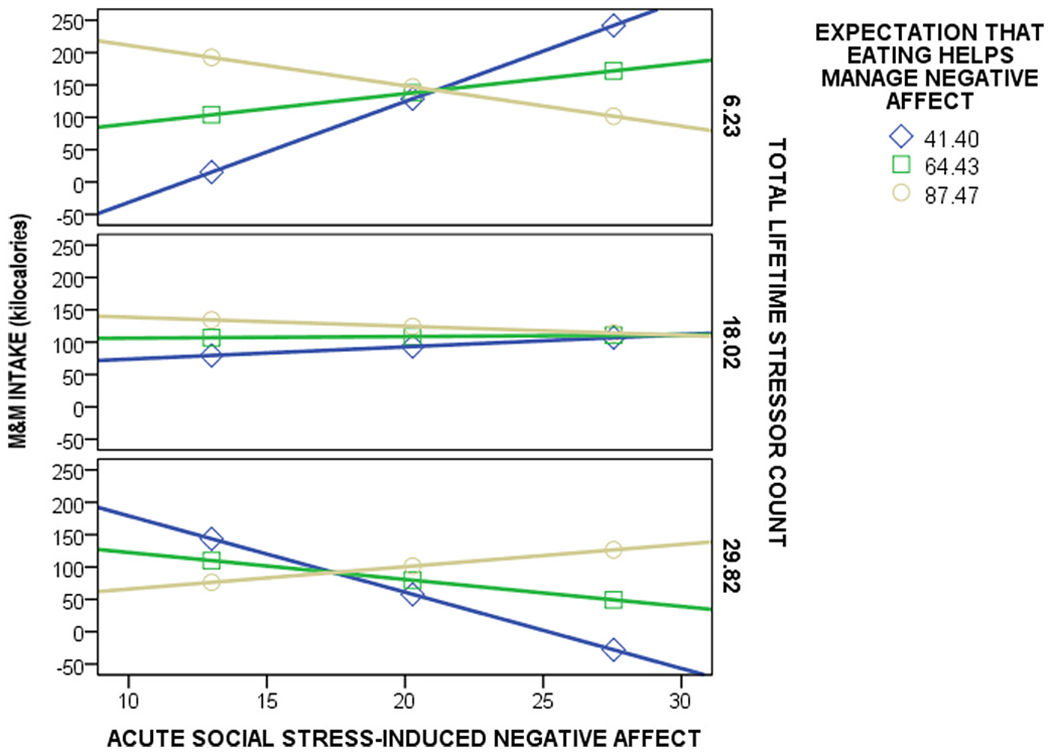Fig. 4.

Total lifetime stressor count strengthened the moderating effect of eating expectancies on the relation between acute social stress-induced negative affect and greater M&M intake post-stress. The moderated moderation (PROCESS model 3) was significant, F(16,27) = 2.11, p = 0.042; R2 = 0.75, indicating that there was a significant conditional three-way interaction effect on M&M intake; when eating expectancies were high, acute social stress-induced negative affect predicted more M&M intake for women with very high total lifetime stressor exposure and less M&M intake for women with lower total lifetime stressor exposure (b = 0.034g, SE = 0.013, p = 0.016; 95% CI: [0.007–0.061]). High and low values for total lifetime stressor exposure and eating expectancies were determined based on 1 standard deviation above and below the mean.
